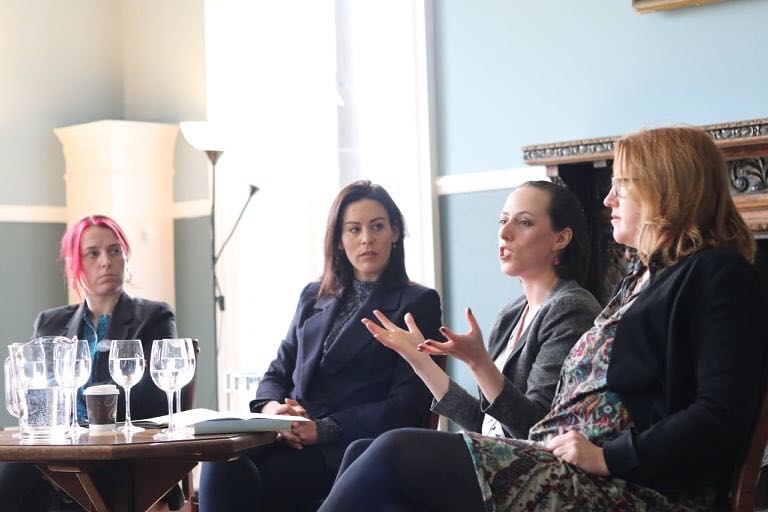
Representation, internationalism, human rights and pay equality were the focus, as Trinity Politics Society hosted a panel discussion on women in politics in the Graduates Memorial Building yesterday.
In a two-hour talk, the panel consisted of Dr Lisa Keenan, an adjunct assistant professor of political science in Trinity, Independent Senator for Trinity Lynn Ruane, Fine Gael TD Jennifer Carroll MacNeill and Independent Senator for the National University of Ireland Alice-Mary Higgins.
A wide range of topics came up for discussion – Ruane offered passionate discussion on issues such as community empowerment, the difference in standards based on gender and social class and how to build a fully participative democracy.
For Keenan, the reduced number of female TDs in this year’s general election was a disappointment – but not hugely surprising one, given that female politicians are “disproportionately punished”.
She pointed to gender quotas, though, as an instance where direct measures on equality worked in politics: 2016 saw an increase in the number of female TDs elected.
MacNeill, an experienced government advisor and academic, discussed Garrett Fitzgerald’s social liberalism and the importance of legislation in effecting change: “One of the things I’ve done a little bit differently in my constituency is focus on the implementation of legislation and awareness of legislation”, she said.
Coercive control, MacNeill said, is one of the most important campaigns she’s worked on: “I went to solicitors, doctors, accountants, pharmacists, hairdressers, places where somebody might mention they were subject to control or abuse, and the person listening would recognise that as coercive control and it is a new criminal offence.”
In a talk heavy on the core tenets of feminism, and their real-world impacts, Higgins said that “one of the great reservoirs for change is feminist economics”, and added that “because the system at the moment is imbalanced and unequal and therefore flawed, we need to be doing everything we can to encourage women to come into politics and to see it as somewhere they can make an impact”.
It was an interesting end to a fascinating discussion that saw the very modern issues facing women today discussed by those best qualified to debate them.






